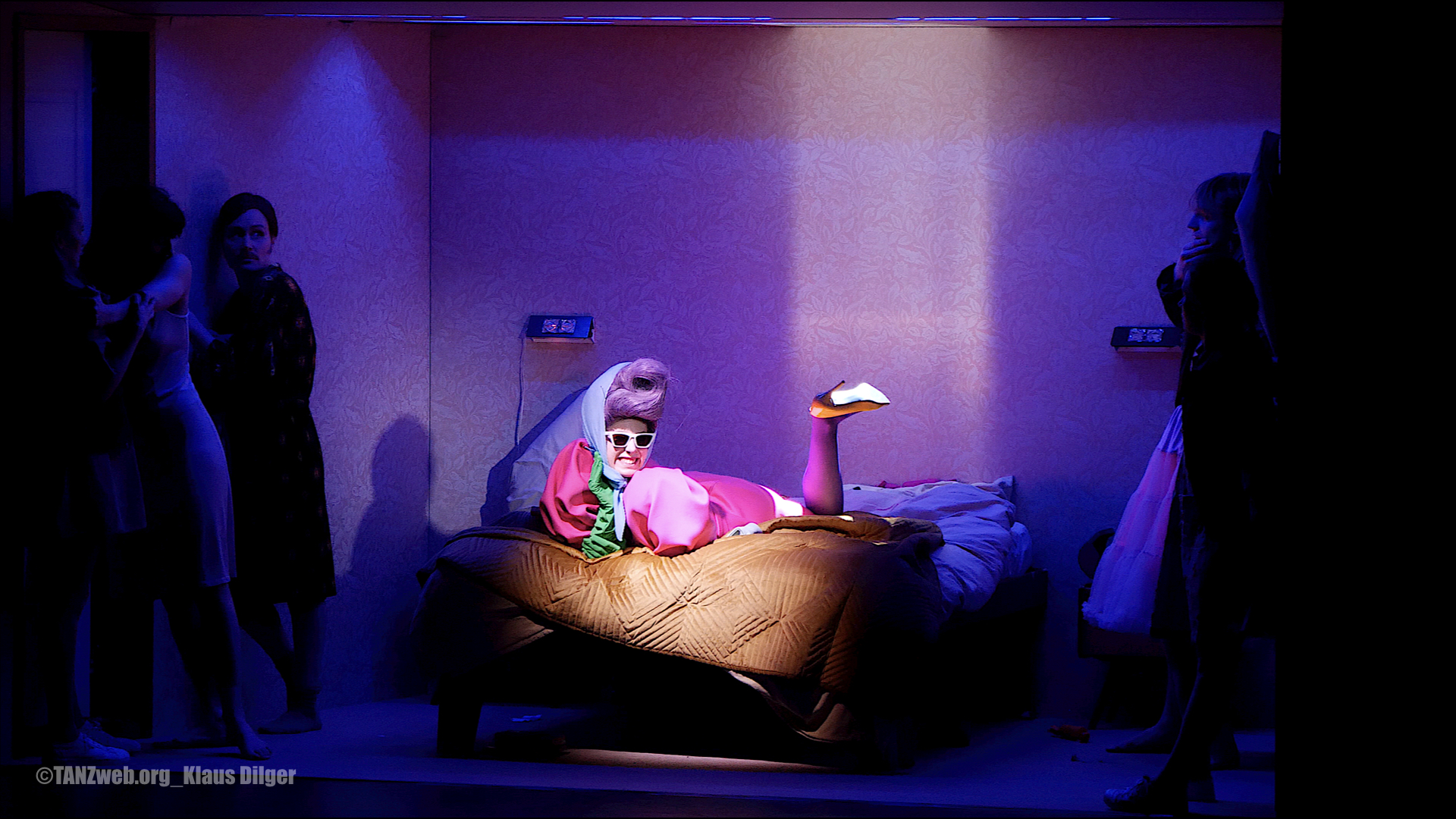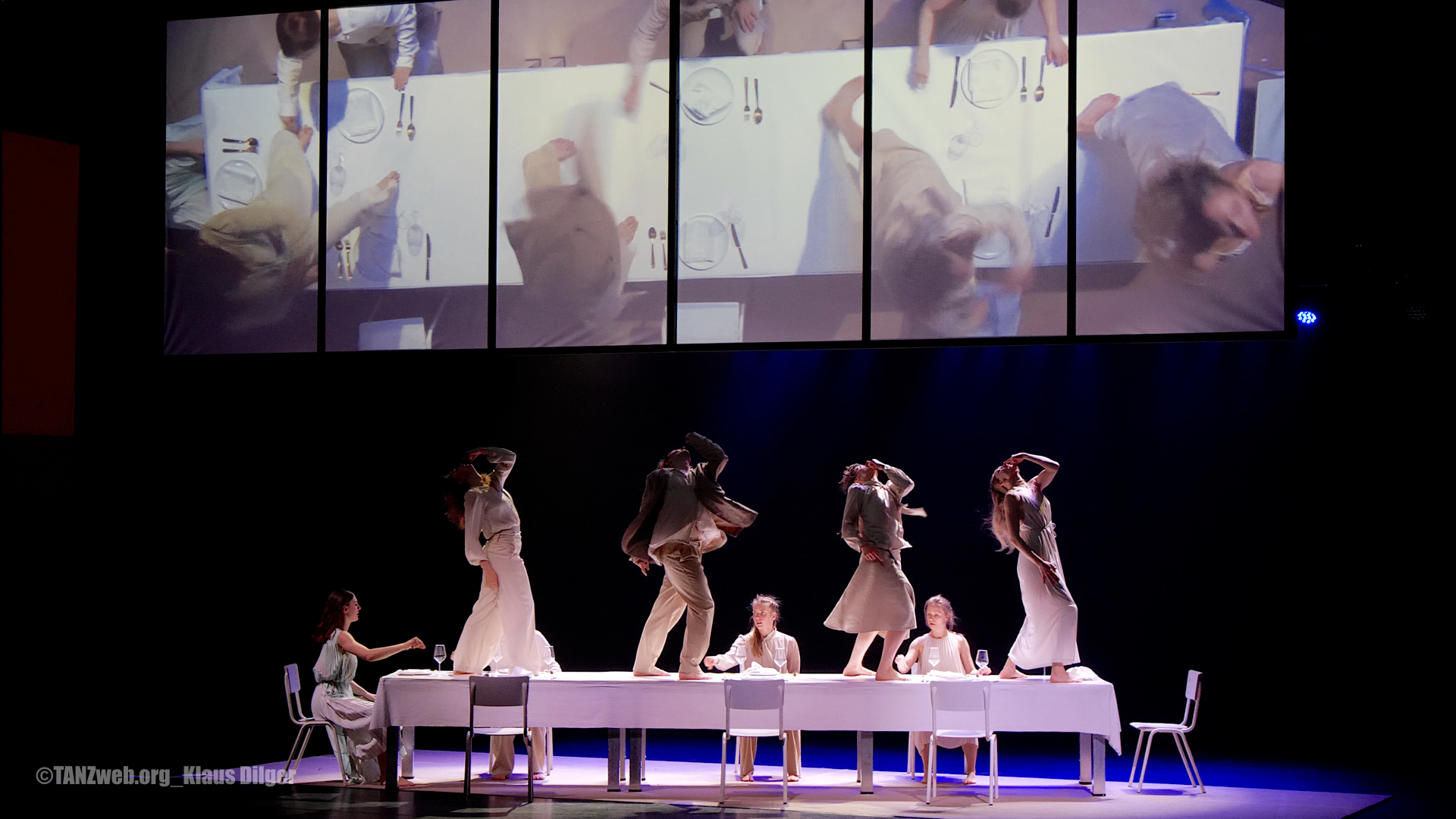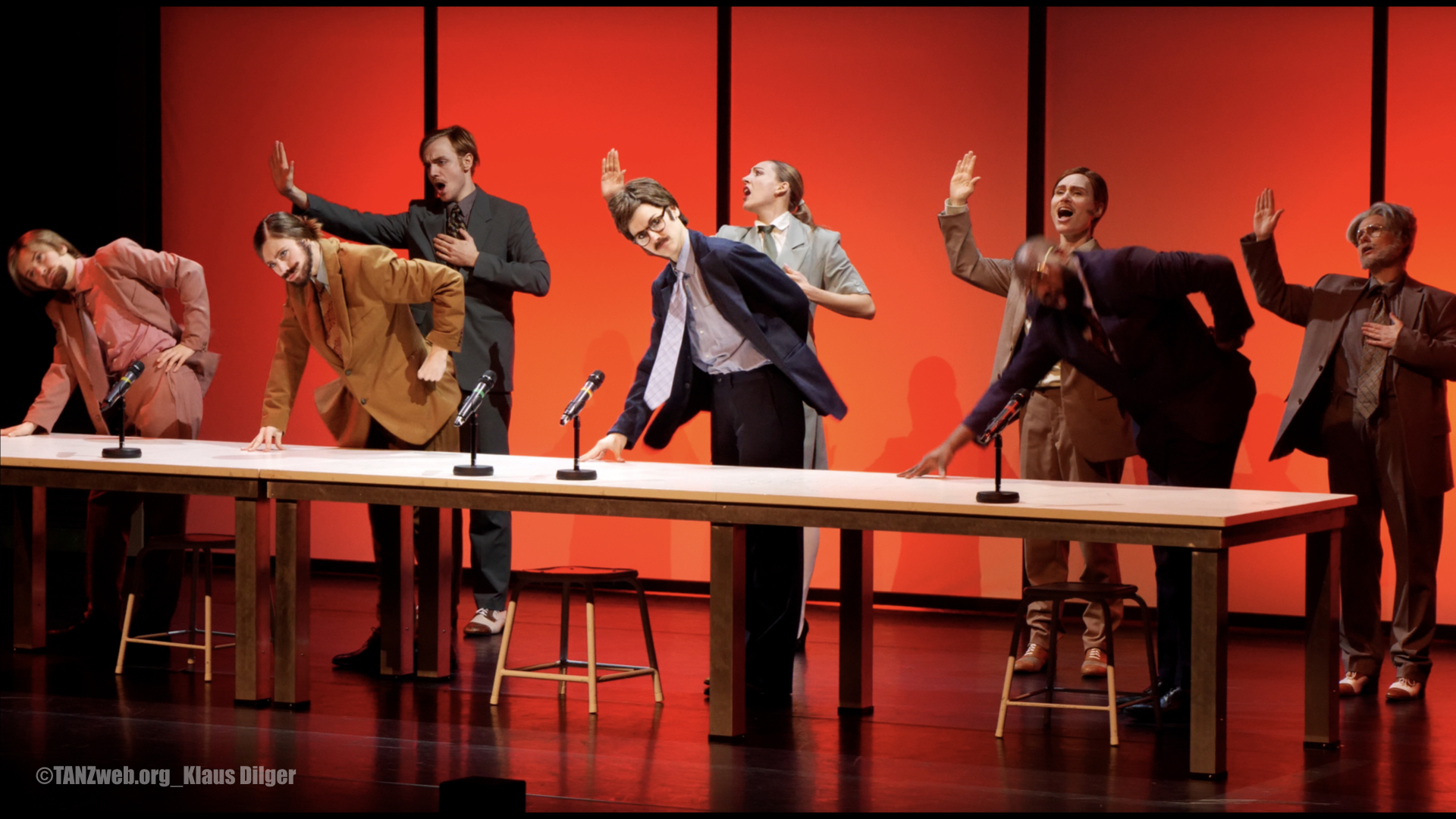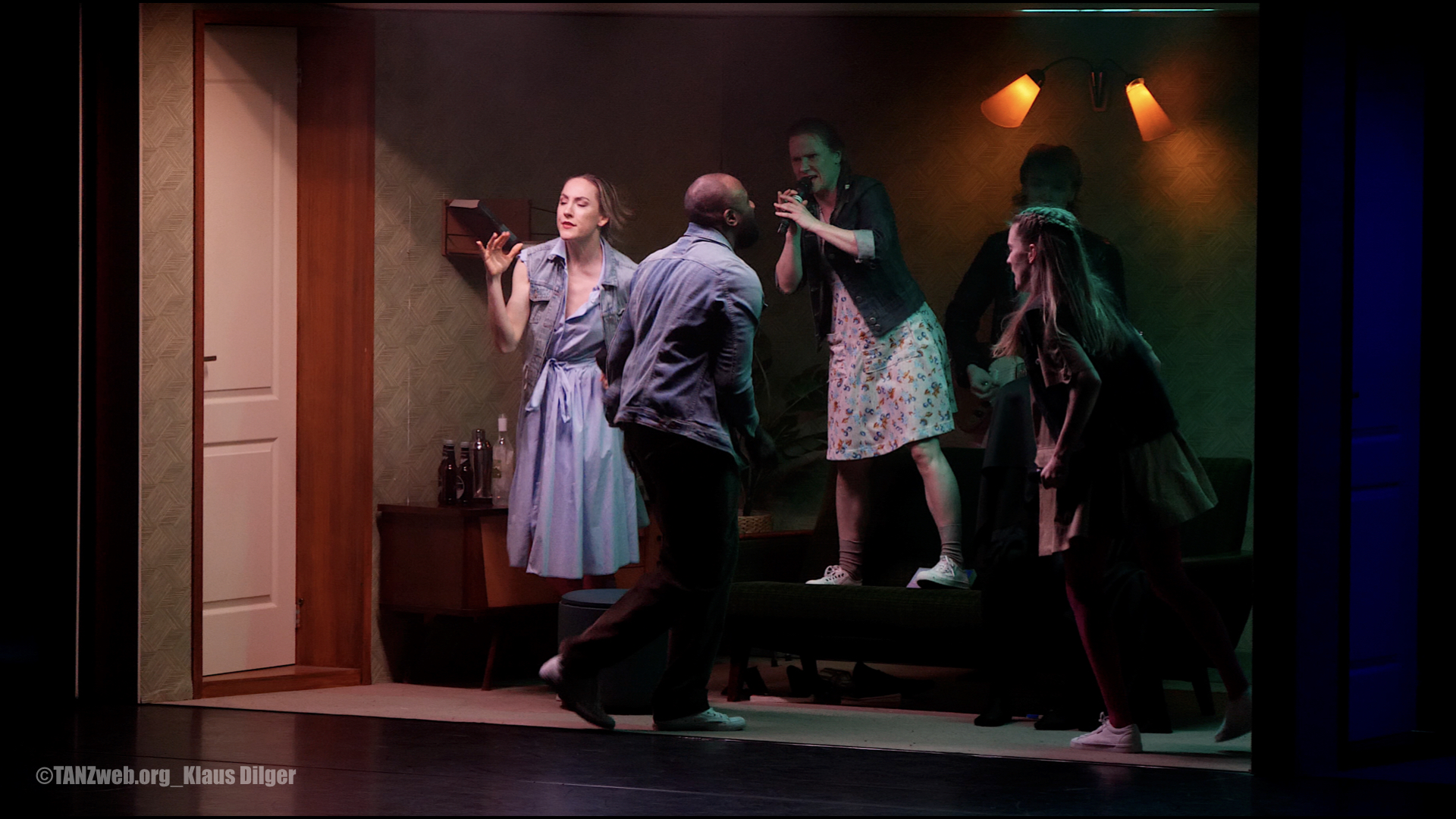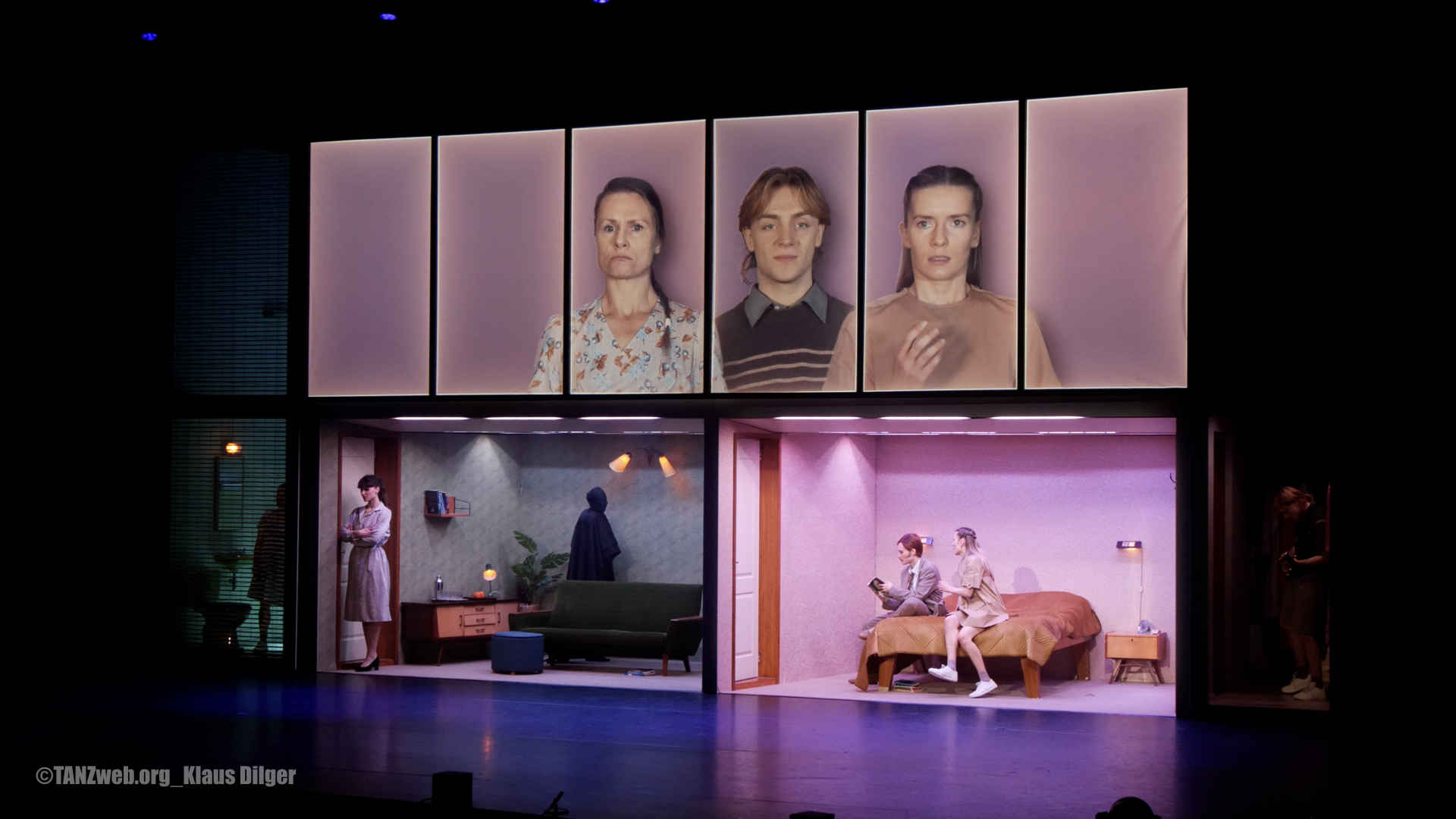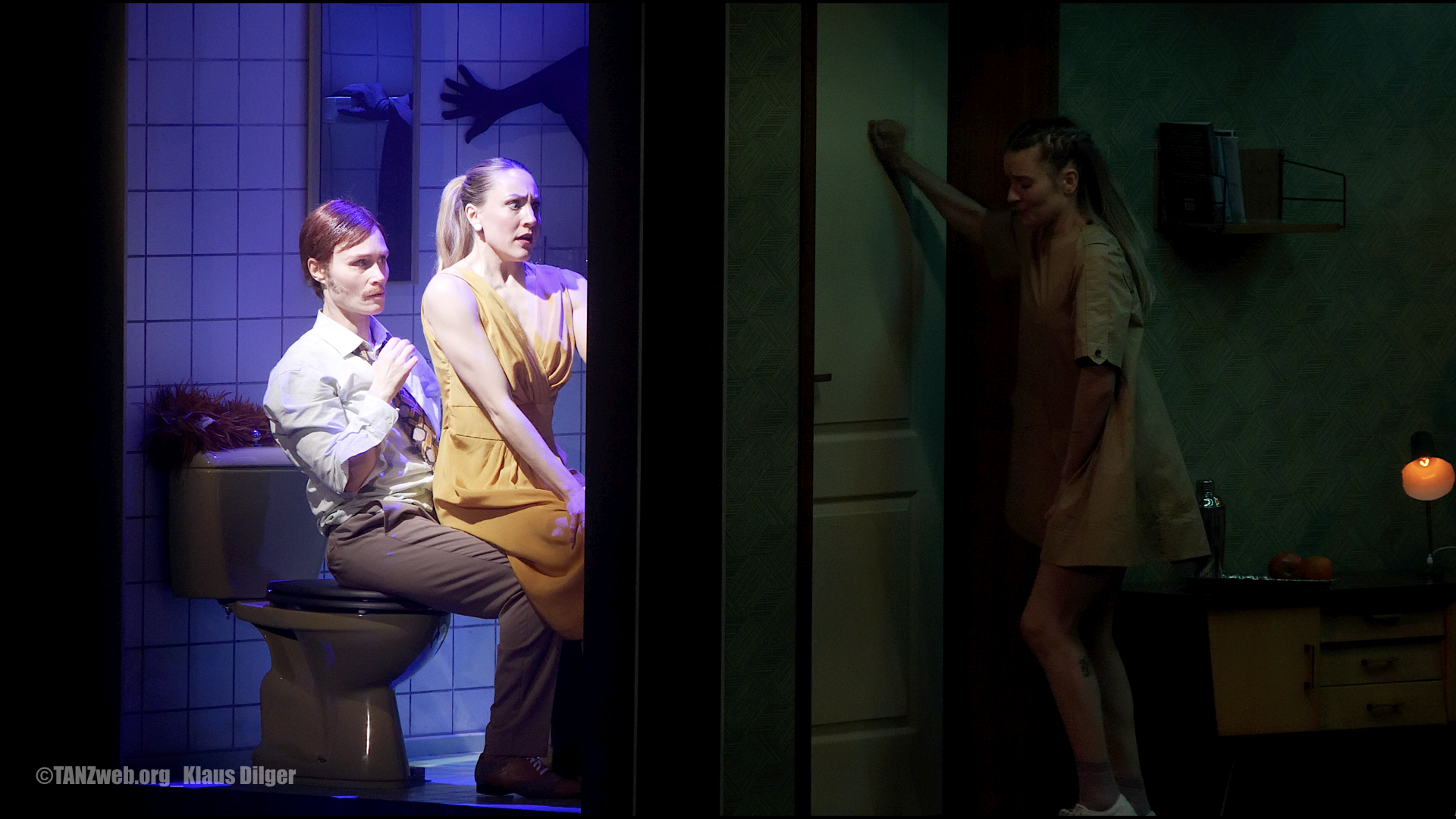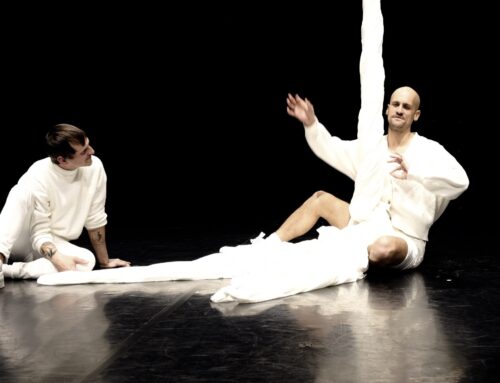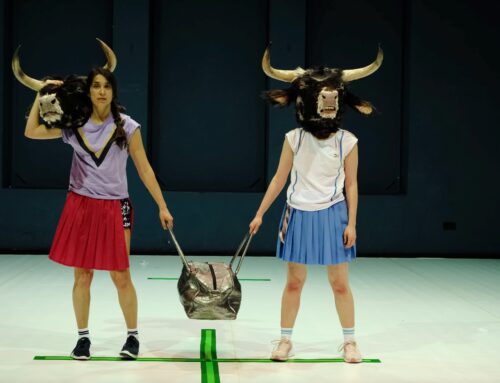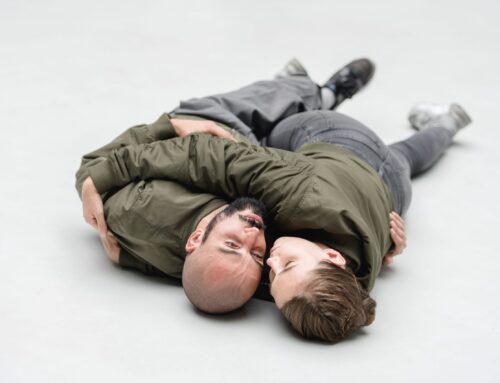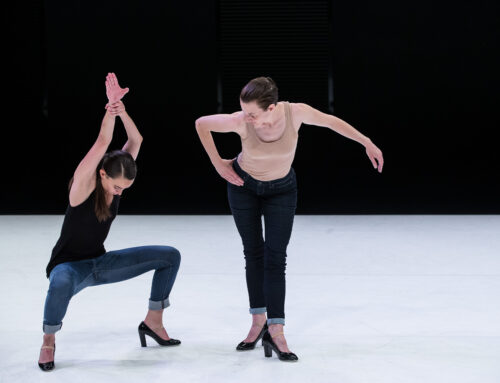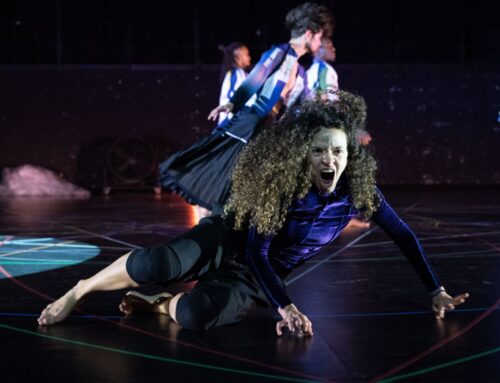schrit_tmacher opening in Kerkrade with Scapino Ballet
Departure into freedom
On the trail of truth: in „Pinocchio Effect“, Cecilia Moisio shows us the value of authenticity. With the Maas Theater en Dans and the Scapino Ballet, she encourages kids to be who they are, against all outside influence.
By: Harff-Peter Schönherr
Advertising with the „worst performance in the world“ is courageous. If you do something like that, you better be really good. If you’re not, no reviewer could wish for a better pitch: Whamm! Sunk!
Cecilia Moisio is brave. Alongside the Maas Theater en Dans and the Scapino Ballet, both from Rotterdam, the Netherlands, she takes multiple risks in „Pinocchio Effect“: shrill comedy interweaves with oppressive seriousness, acting, video, text and song almost marginalise the dance, yearning hopefulness clashes with nightmarish gloom, and although the target audience is children, adults should also question themselves.
The use of Carlo Collodi’s carved pinewood figure alone, which awakens to humanity and whose nose grows longer with every lie, requires self-confidence on the part of the director. Anyone familiar with Collodi’s figure expects a commentary on the highly questionable educational methods of the late 19th century, and this is not what Moisio is concerned with. Anyone unfamiliar with Collodi’s character, like many of the Tiktok and Fortnite generation at whom the production is aimed, may frown at the title.
However, anyone watching the 400 kids who will experience „Pinocchio Effect“ on 20 February at the Kerkrade Theatre in the Netherlands, attentive, engaged and fascinated, will quickly realise that none of this is a problem. Moisio’s plot is far enough removed from Collodi’s to not seem like a museum piece; moreover, education is often still as abusive today as it was back then. And the theme that Moisio deals with here in her usual psychological manner is as timeless as it is universal: the lie, as a „behaviour we all know“, the growing of the nose, serves as a symbol, as a symbol, for the consequences of guilt and self-deception, of unchallenged taboos, of toxic dominance.
It begins with a long table, microphones on it. Law after law is proclaimed, forcefully and demagogically. The ensemble, dressed in emphatically formal attire, displays cynicism, lust for power and coldness. Law 1 is of course: You must not lie! And then it gets more and more absurd. Law 10: Girls must always smile. Law 19: You must not think for yourself, an opinion different from ours causes confusion. Law 26: Children are not taken seriously.
The children in Kerkrade identify themselves immediately. Opposition erupts. They learn that only rebellion helps against manipulators.
The „Pinocchio Effect“ actually begins in the foyer. The supply lines under the ceiling are exposed here; some concrete structures, taken over from the old building during the modernisation, show their steel reinforcement as if in a wound. This signals: This is a place to look behind facades.
On the stage, a house, a flat is being built. Narrowness is communicated, petit bourgeoisie. We are in the 1950s, observing a family, the parents, their children. No one here who doesn’t put up facades, emotionally and intellectually. No one who hides wishes and dreams, no one who pretends realities that don’t apply to everyone. Imperceptibly, the building becomes more permeable, which we look into like a laboratory experiment in which the family is exemplary for society. People penetrate the walls and ceilings. Beneath them, masked, a warning figure of terror, perhaps it is death.
A downward spiral of all-round despair, deformation and agony begins. At the end, when everyone has aged and grown up, the walls and ceilings dissolve completely, all the furniture disappears and the agonising feast with which Moisio dismisses us is a battlefield on a bare stage.
Beforehand, we see a house in which everyone has their own secret room. With a father who rejects his children, who drinks, punishes, shouts at, intimidates, raises his hand. At one point, he frantically goes to the toilet, the place for the most taboo of all taboos. The mother is embittered, her rebellion atrophies. The children fail their parents. They live it up as best they can, play the guitar, read books, always in fear of being discovered. But they keep up appearances, support the façade. The older they get, the harder things become.
There are goosebump moments in „Pinocchio Effect“. „What if I say I’m not like the others?“, we hear from the Foo Fighters. „What if I say I will never surrender?“ That’s powerful. And infinitely sad at the same time. The rebellion loses, and loses, and loses. Until it starts to win, but that only happens at the very end.
The story is multi-faceted and always fragile. It demands a lot from the kids. Including an openness to a movement language that takes some getting used to. It is highly precise, extremely stylised, extremely reduced. The dancers‘ sense of space is somnambulistic, every gesture is clearly outlined, every facial expression is chiselled. Sometimes the performers remain in freeze for a long time, sometimes they switch to slow motion. This is high-class dancing.
However: Dance is rare. Astonishingly rare. Unexpectedly rare. Only at the end, in the big liberation scene, does Moisio give it space. Until then, the text dominates. He discusses all aspects of lying, including revenge, appeasement and fear. At times it sounds like a didactic play, but its vividness is great. What do we also learn? That our nose itches when we lie. Whether that’s true or not.
The staging pulls out all the stops. Coloured light is used suggestively, from turquoise to pink. Sound files introduce additional layers, from telephone key tones to the cooing of birds. Videos show alternative perspectives, fade in flanking actors and provide commentary. The ensemble interacts intensively and joyfully with the audience, and not just when the lights in the auditorium switch on and the boundary between stage and audience blurs.
The reaction of the kids is often very clear. They are shocked and outraged when their father resorts to violence. They are astonished and amused when the two fat emperors dangle phalli during their demonstrative (costume) nudity while they fight each other with man-sized inflatable bananas. Yes, the rulers are naked. Power, we learn, does not clothe people.
The family, whose disintegration we witness, eats away at itself. Mother cries. Father breaks up a party, confiscates a guitar. The children cover their eyes, throw themselves on the bed, bang their heads against the wall. A vase shatters, a book is torn to pieces, a bottle rolls across the floor. Then, from the speakers, rhythmic clanking and clicking, thumping and booming, heartbeat-like. Crisp rock beats. Disturbingly over-soft easy music, an almost unbearable contrast to the destroyed existence of the characters. It’s all clever. And it has an effect.
Everyone is lying. The parents, because they think their children are not up to the truth, don’t deserve it. The children, to make family life bearable. From time to time, everyone grabs their noses. Covering their eyes, ears and mouths: seeing nothing, hearing nothing, saying nothing. And the dark horror passes from room to room.
Even a dream sequence of the mother does not allow an escape from reality. A huge banknote suddenly hangs in the room, a giant lipstick. Weird, comic-coloured figures on high heels dance in, exaggeratedly cheerful, with crazy tower hairstyles and handbags. The escapism is short-lived. The backdrop shows what threatens: a wild, archaic, forbiddingly rugged mountain world in blood red.
In the end, there are new laws. They cancel out the old ones. One of them: if you lie, you’re not a bad person. Another: children are taken seriously.
Taking children seriously. Moisio’s 70-minute film does the same. He does it in an exemplary way. As vulnerable individuals with a need for freedom and questions about the future, as responsible theatre spectators.
At the end, he utters words that move us to tears: „I’ve stuck to your rules for a long time.
I have learnt to lie. I’ve learnt that I’m not allowed to be who I am. Now I know better. I’ve realised that the world is bigger than our living room. I’ve grown wings and I’ve flown.“ That’s wonderful.
The „worst stageing in the world“? That’s definitely a lie. Well, it may not be the very best. But it’s pretty close.

